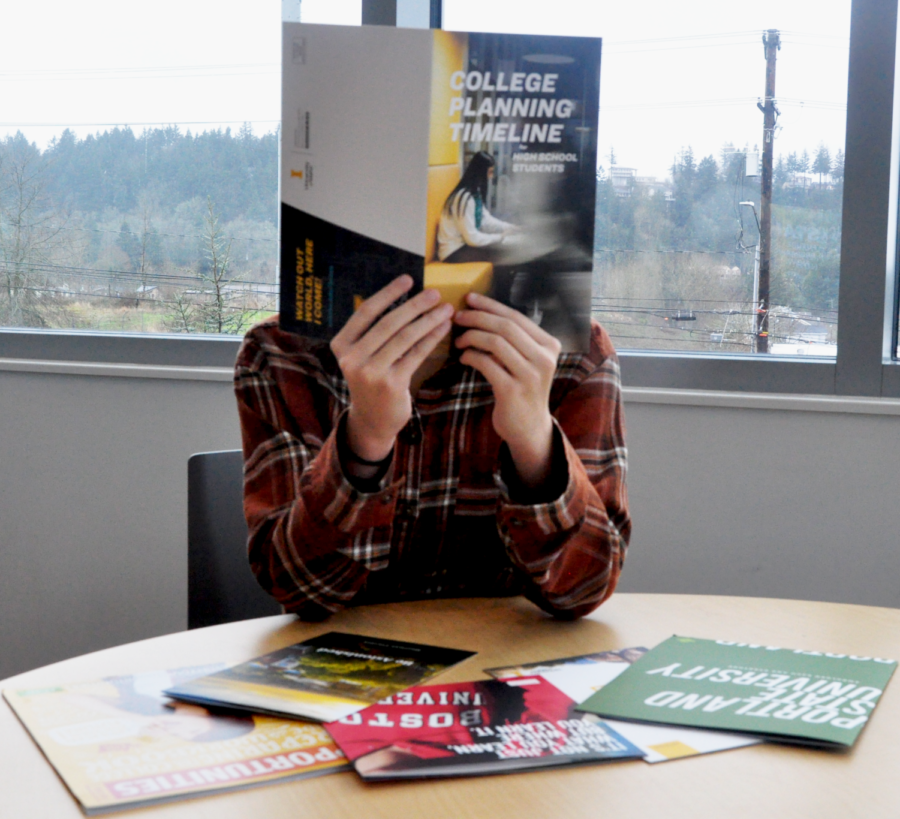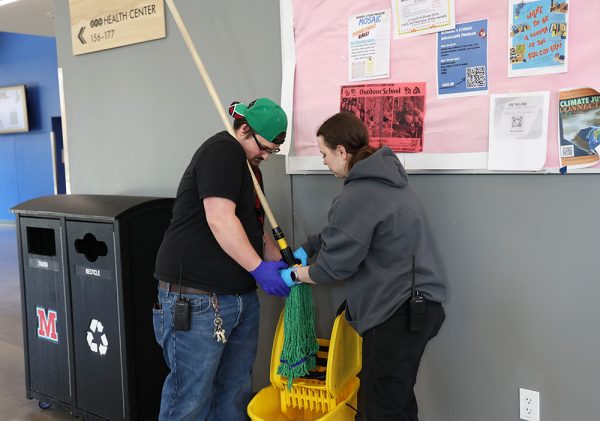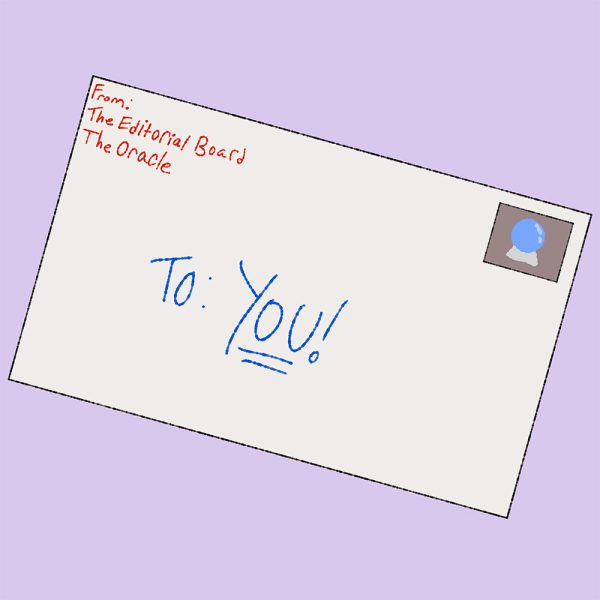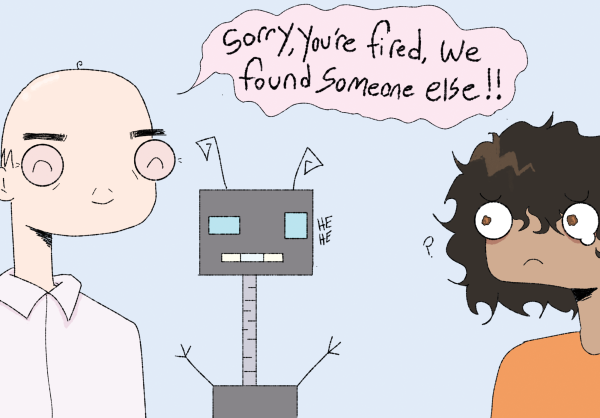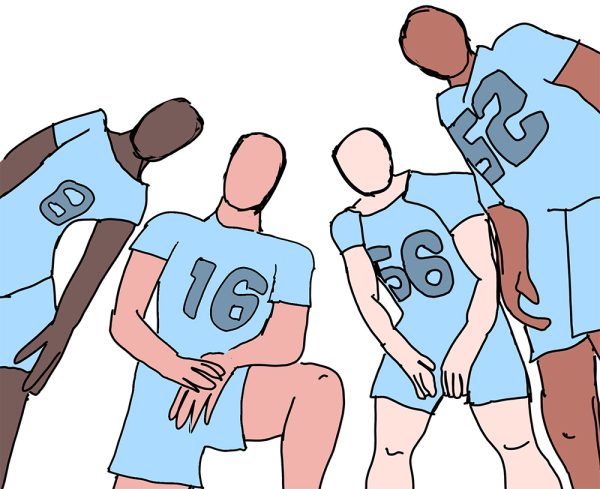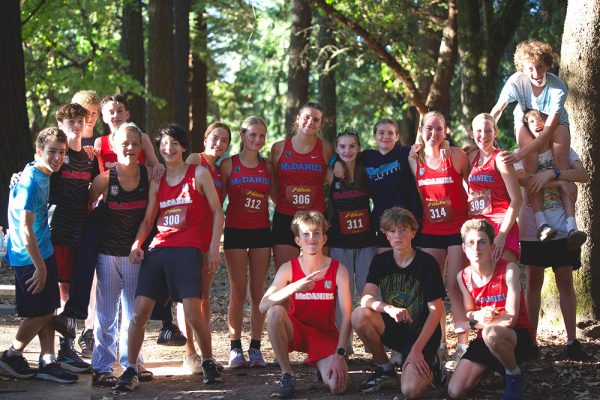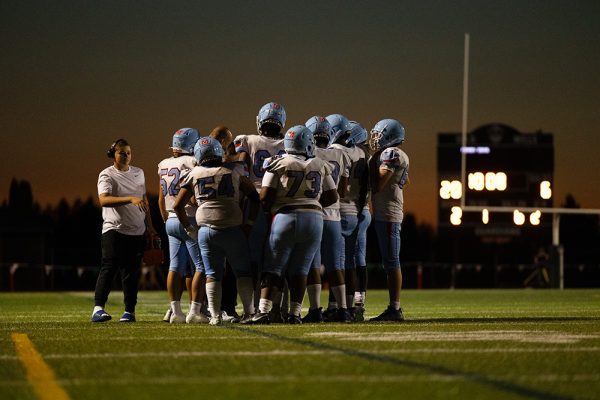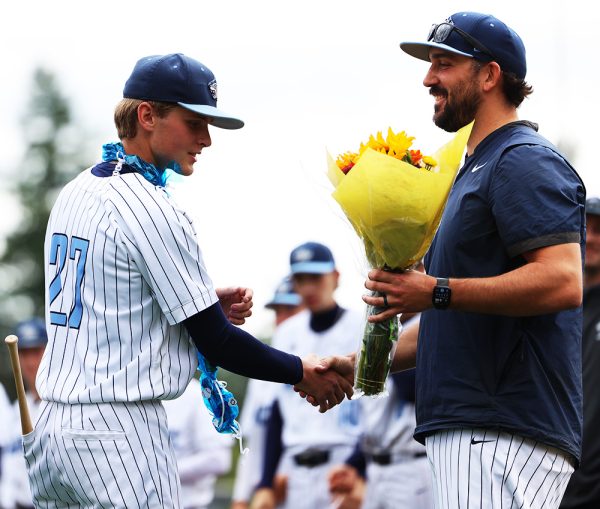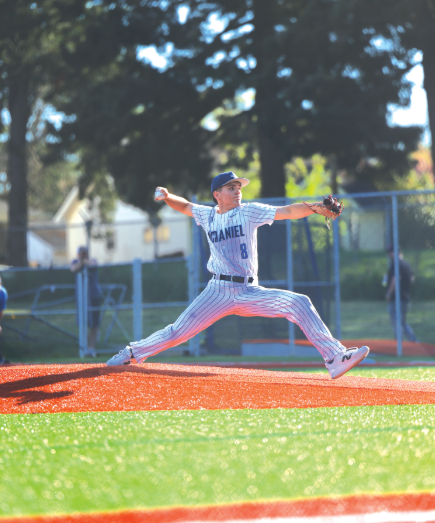Using resources in building is best way to plan for your future
Most kids growing up have been asked the age old question, “Where do you want to be in 10 years?” It’s a thought-provoking question that forces an individual to think about how they want to spend their life. Whether it’s going to college, taking a trades path, or another example of the infinite possibilities, a person’s choice must require some sort of planning to make it happen.
At just 17- or 18-years-old, when seniors are developing their life after high school, that question can seem far more daunting than before—perhaps because it’s much more real. Soon they will leave the nest and take on the world as independent adults. There is an immense amount of pressure, stress and confusion that comes with planning for your future, so to successfully navigate these pressures and create a life to love, students should use the resources in the school to help guide them in the process of planning.
Senior Maria Georgeades tries to focus on the present and not stress too much about the future, yet at times that pressure can take over.
“There’s times where I’m stressed because I feel like I have no idea what I’m doing,” Georgeades explained. “I’m not completely sure where I want to go to school or what I want to major in.”
It may seem overwhelming, but there are several simple ways to deal with them successfully. The school has many resources that can assist students along their journey of planning for life after high school, such as counselors, teachers, college and career workers and more. Students are using these resources currently to help themselves accomplish all they want in the future.
Senior Finn Quinn uses the counselors within the building to help navigate the stress of planning his life.
“I’ve been fortunate enough to have a counselor who really cares and makes a difference and that helps alleviate pressure and stress,” Quinn said.
Though counselors are often the first place students might go to for help and answers regarding life after high school, there are several other people students can go to as well.
Senior Addie Jensen took advantage of teachers in the school by asking them questions to help with preparing for her future. Jensen feels that teachers have loads of knowledge and varied experiences that are similar to what she is going through now, which she feels is a valuable way to learn.
“I always feel like I should be asking teachers, ‘Well what do you think I should do?’. Especially if I want to go into education-teaching I’m asking everyone like how did you get here, because I don’t know,” said Jensen.
Teachers can provide a plethora of insight not only on jobs as a teacher, but also jobs within their field. For example, if a student is curious about a career related to history, they should speak to one of the history teachers here about job options in that field. It can aid the student in planning for their future by developing their understanding of what they might want to pursue, and what they would have to do to get there.
When it comes to planning for life after high school, there are so many paths to choose and mistakes to avoid that can make the decision even more important and intimidating. Senior Nyah Johnson feels that being so young makes it more difficult to decide her life.
“There’s a pressure to constantly make the right decision when you’re planning your life because it’s like everyone says ‘Oh you’re young you can make mistakes,’ but as you get older the mistakes are way bigger and matter a lot more.”
There is a lot of pressure in preparing for the future, because, for most, the goal is a fulfilling and happy life, but it can be difficult for a person to judge what they really want to do in their life when they’re still so young.
“I feel like 17 is just way too young to figure out like what kind of job you want to be working for the next 30 years,” Johnson described.
These feelings of confusion and stress can feel like a giant weight on one’s shoulders. The school offers ways for students to avoid these feelings by exploring different jobs now in high school so that they can see what they might be interested in later in life.
Erica Spencer, the career coordinator here, does just this. She exposes students to a variety of careers through career related experiences. This includes mock interviews, resume building, workshops, job shadows, informational interviews one-on-one for students and more.
Spencer aims to set students up with opportunities and experiences that can help them figure out what they would like to do after high school, despite it being a difficult thing for students to work through.
“I see a lot of students that are stressed and worried about, you know, their next step after high school, do they want to go to college, and worrying about paying for college, or do they want to go straight into a career, or just get a job? ,” Spencer said, “so it’s a lot of decisions to be made, so yeah that can be very stressful.”
The College and Career Center and working with Spencer is a great way for students to see what type of careers they might want to pursue after high school, so that they feel less like they have to scramble once they enter the “real” world.
Throughout life, humans will meet obstacles that stand in their way. It’s not about how large, annoying, hurtful or demanding the obstacle is. What matters is the reaction to the obstacle–shrink away from it or take it head on? I believe to achieve anything in life, you must take your obstacles head on and with an open mind. Students who trek on despite the setbacks and use the resources around them will help form the path to guide them into a life that they can love.
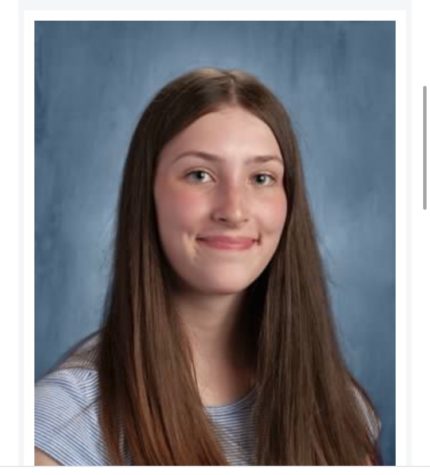
Olivia Oliver (she/her) is a senior who enjoys hanging out with her friends and spending time outside. She loves being a journalist because she can engage with her community and be creative.


